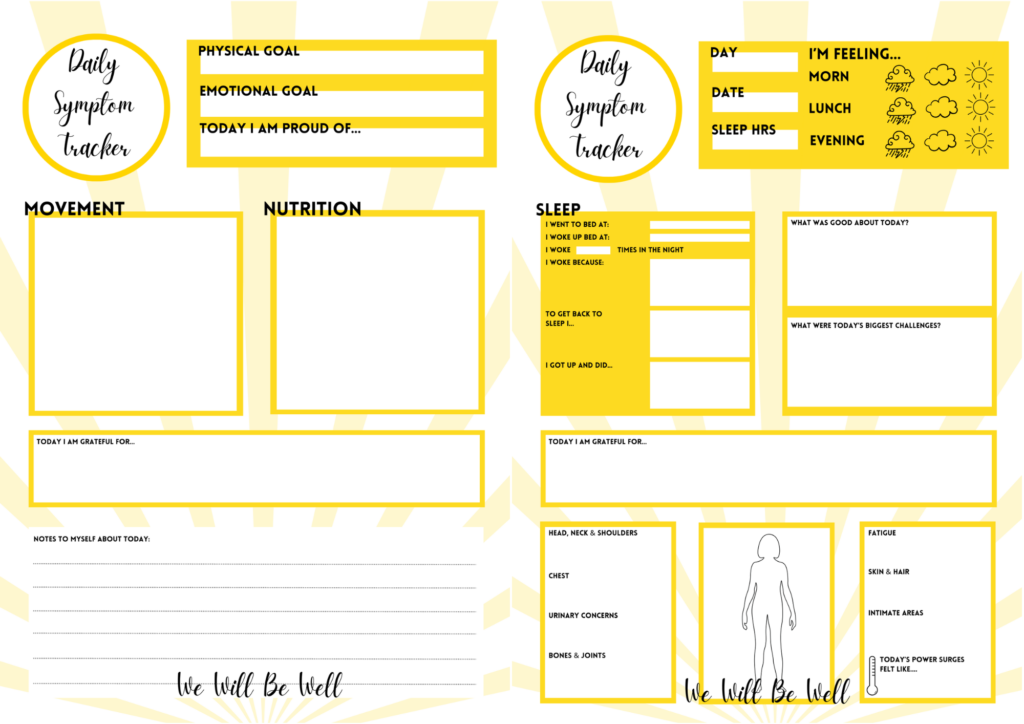
Why should I track my symptoms?
By being more aware of how you feel, physically and mentally, how your body is performing, how it’s reacting to different situations at different times of the month you give yourself the best possible chance to not only work out how to manage your symptoms but also to have a truly informative conversation with your healthcare professional.
Using a Symptom Tracker, like the one created for you by us, can help you to identify any potential triggers for your symptoms.

If you start to notice patterns in your symptoms you can start to find what remedies will help to alleviate them or to try and avoid the triggers altogether.
It can also be helpful to track what solutions you’ve tried when you do experience symptoms so that you can see what is beneficial for you. Bear in mind that what works really well for your best friend may not work for you at all.
As over 200 of our bodily functions rely on oestrogen, it’s not surprising that reducing levels of this hormone and our other sex hormones cause us issues.
